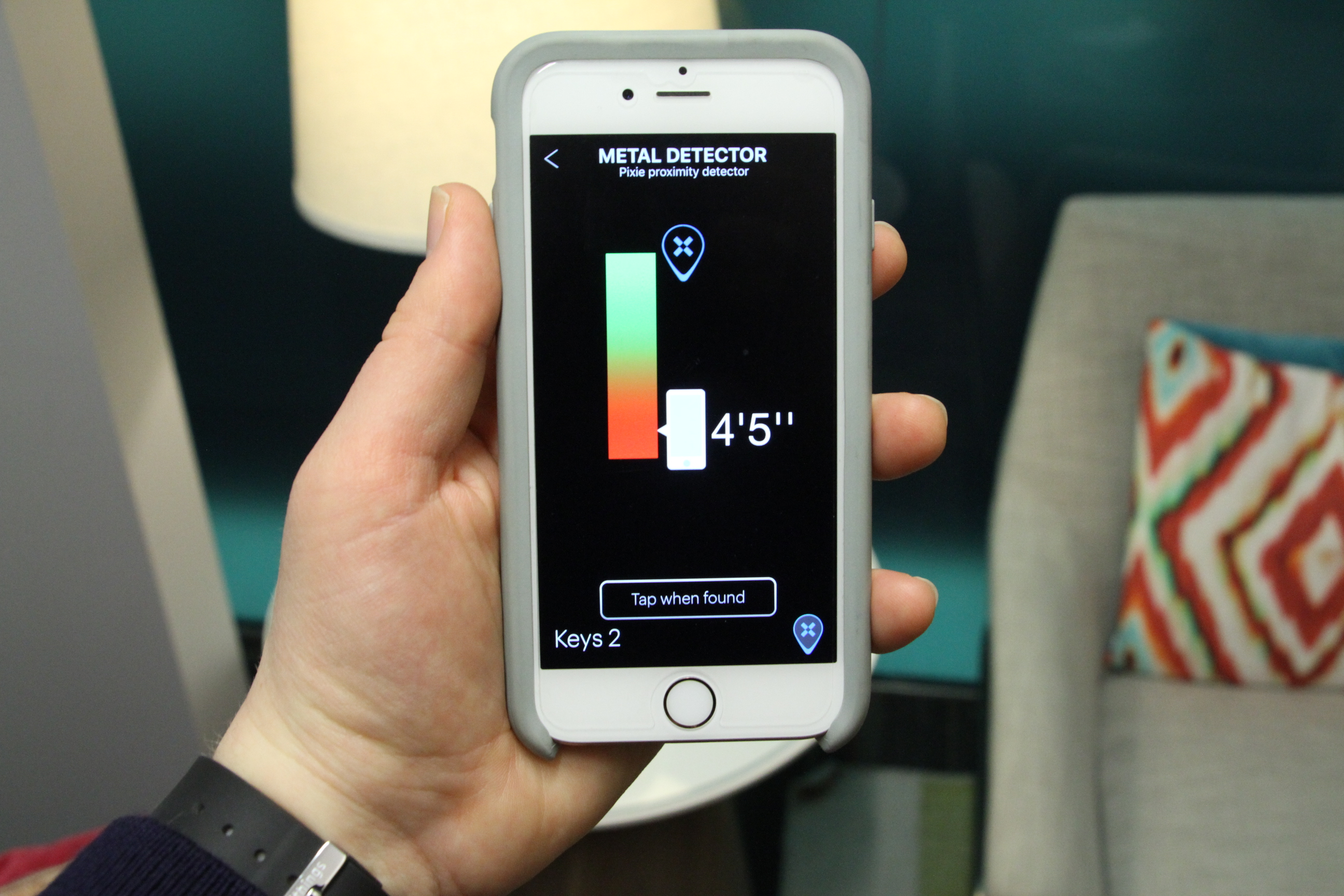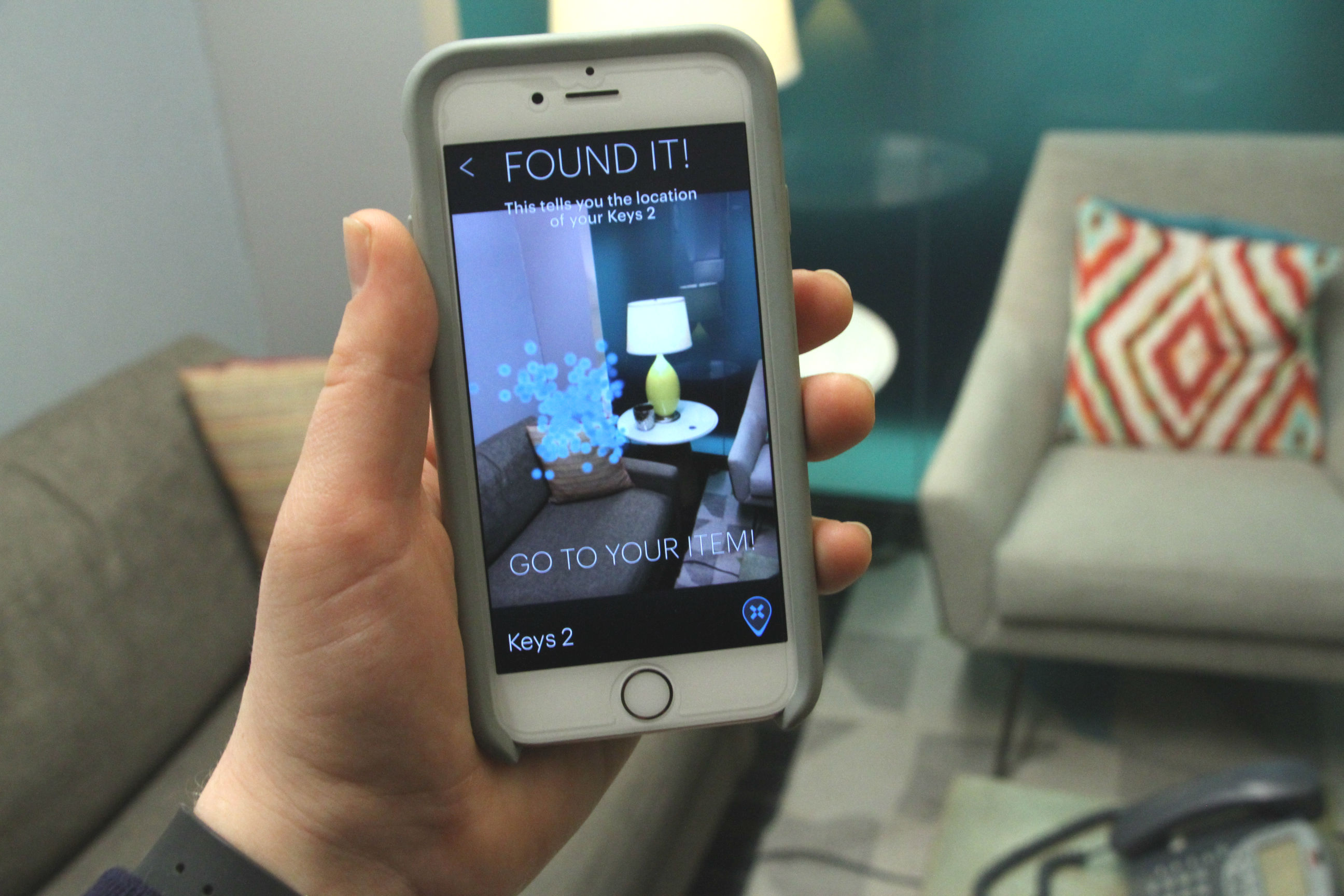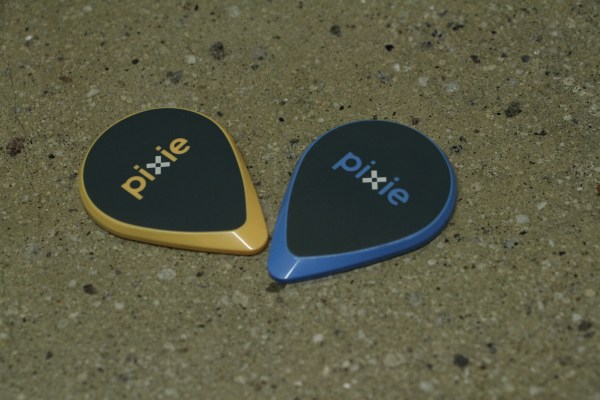I’ve gotten better about not losing my keys. Could be that I’ve made more of a concerted effort not to lose them. Or it could be the fact that I live in a New York City apartment and there simply aren’t as many places to lose them. Could also just be the fact that I don’t drink as much as I once did. I tend to keep better track of things these days.
I still have those movements, of course, running late for the train on the way out the door, down on my hands and knees, checking under desks and behind sofa cushion. It’s a common issue that has been addressed by a number of different electronic solutions, Tile being the most prominent, a product that has launched countless imitators.

Pixie’s approach is rather similar on the face of it – a guitar picked-shaped device (points) that adheres to a frequently misplaced item, like a keychain. The differentiator between this and existing technologies is an extra layer of augmented reality tech on top of the standard pinging products. The company compares it to “Pokemon Go,” because, well, that’s still far and away the best method for contextualizing AR tech to non-tech people.
Pairing is pretty straight forward – open the app, stick a Pixie point tracker nearby and it’ll illuminate and show up the list of connected items. One of the points needs to be adhered to the phone, via the sticky backing or a phone case that comes bundled with one of the packs.
Utilizing the AR functionality involves scanning a room in a manner similar to taking a panorama photo, slowly panning across the spaces and keeping the arrow aligned with the horizon line.
The app will guide you in the right direction, and when it spots the point, it flashes brightly colored sparks over the image of the room where the point resides, even if it’s, say, inside a desk drawer. All the while, the system plays a pinging sound, akin to radar or a metal detector, quickly speeding up the closer you get to the object.

Within a few feet, the app excitedly reverts to a “metal detector” screen, with a red and green gauge displayed along side the distance to discovery.
At $49 for a pack of two and $99 for four (both of which also ship with the proprietary phone case), it’s priced similarly to Tile’s offering. The main distinction, aside from the bright colors, is the notion of gamifying the search – perhaps something that appeals to users who just don’t have enough Pokemon Go in their lives.
Honestly, fun isn’t the first thing I’m looking for in a product like this. I’d prefer to find my keys and be just be on my way.
